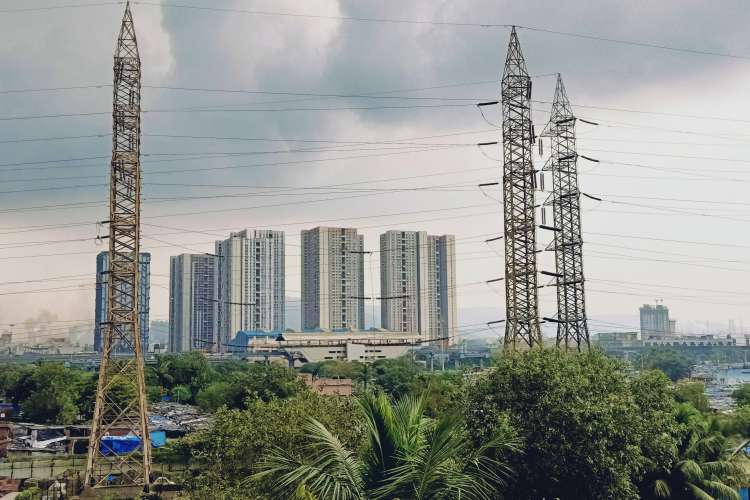
India’s real estate sector is witnessing a new trend as redevelopment gains momentum in major cities like Mumbai, Delhi-NCR, Surat, and Bengaluru. This trend is driven by space scarcity and the need for more efficient land use. Many aging buildings and housing societies are being modernised and redeveloped through projects involving government partnerships, societal initiatives, and developer-led efforts. Redeveloping old buildings and societies is now emerging as a major strategy for real estate developers.
The overarching goal of redevelopment is to transform older buildings into modern, sustainable, and efficient real estate assets, with an emphasis on enhancing living and working environments. The infusion of modern amenities, such as elevators and gyms, improves the quality of life for residents. Additionally, many older structures do not meet current safety standards, making them vulnerable to natural disasters. Redevelopment projects prioritise constructing buildings with modern safety features, offering residents greater security and peace of mind.
READ | Natural disasters: Insurance industry must brace for looming crises
Need for redevelopment
Aging colonies, dilapidated buildings, space constraints, and rising urbanisation are compelling developers to modernise existing spaces. In densely populated cities where space is at a premium, redevelopment projects offer an opportunity to use land more efficiently, often resulting in a larger number of housing units. This helps address the growing demand for affordable housing in urban areas.
Mumbai, India’s financial capital, is leading this trend, particularly in key micro-markets like Dadar, Prabhadevi, Bandra, Worli, Vile Parle, Juhu, Malabar Hill, and Mahalaxmi. Similarly, New Delhi, Surat, and Bengaluru are seeing upgrades in older residential areas due to sector demand and the need for improved urban infrastructure.
Redevelopment projects are revitalising urban landscapes nationwide. In Mumbai, 15-25% of property registrations are now linked to redevelopment efforts, with over 3,500 projects approved by May 2024. Tier-I developers are increasingly focused on revamping prestigious areas, drawn by the potential for significant returns and growth. To cater to the evolving preferences of discerning customers, developers are increasingly targeting the upscale segment with premium projects.
There is a growing demand for localities that offer green spaces and enhanced living conditions. This trend is expected to accelerate in the near future. Incidentally, revamped projects are also addressing this demand by incorporating more green spaces. Redevelopment also presents an opportunity to create networks of smaller towns or communities surrounding central hubs, which could help mitigate the challenges posed by overpopulation in large Indian cities like Bengaluru and Delhi.
Challenges for builders
While revamping prestigious areas may seem lucrative, it is not without challenges. Redevelopment is a complex process, and one of the biggest hurdles is securing approval from a majority of residents. Navigating building permits and regulations can also be time-consuming and complicated. Real estate developers point out that redevelopment projects require substantial upfront costs, including approval fees and the creation of rent reserves for displaced residents.
To incentivise redevelopment, the Maharashtra government has introduced several measures, including reduced premiums for land conversion from leasehold to freehold and increased Floor Space Index (FSI) allowances for redevelopment projects. These changes are expected to lower project costs and improve profitability for developers.
The Maharashtra government is also promoting self-redevelopment projects, where housing societies manage the revamping process independently. While this approach gives residents more control, it may limit their access to the financial resources and expertise that developers typically provide.
Developers, for their part, must ensure fair compensation for displaced residents and maintain transparency in negotiations. These are essential elements for the success of redevelopment projects. All parties involved must balance the interests of all stakeholders. While redevelopment can modernise urban areas, it may also lead to the demolition of historically or culturally significant buildings. Developers have a responsibility to be mindful of an area’s cultural and historical significance and strive to preserve it while making projects future-ready.
Government agencies such as the Ministry of Housing and Urban Affairs, city development authorities (like the Mumbai Metropolitan Region Development Authority, Bangalore Development Authority, and Delhi Development Authority), and state housing boards such as the Mumbai Housing and Area Development Board, Karnataka Housing Board, and Tamil Nadu Housing Board are actively driving this redevelopment trend.
Local governments have established special purpose vehicles to manage major projects like Smart Cities and Metro Rail, ensuring efficient execution and streamlined project management.
India’s residential real estate sector serves as a bellwether for the nation’s economic health. A thriving property market positively impacts various related industries, including construction, raw materials, banking, and finance. Whether through redevelopment or new projects, the high demand for residential property drives economic activity, ultimately contributing to increased employment and GDP growth.
Anil Nair is Founder and Editor, Policy Circle.

